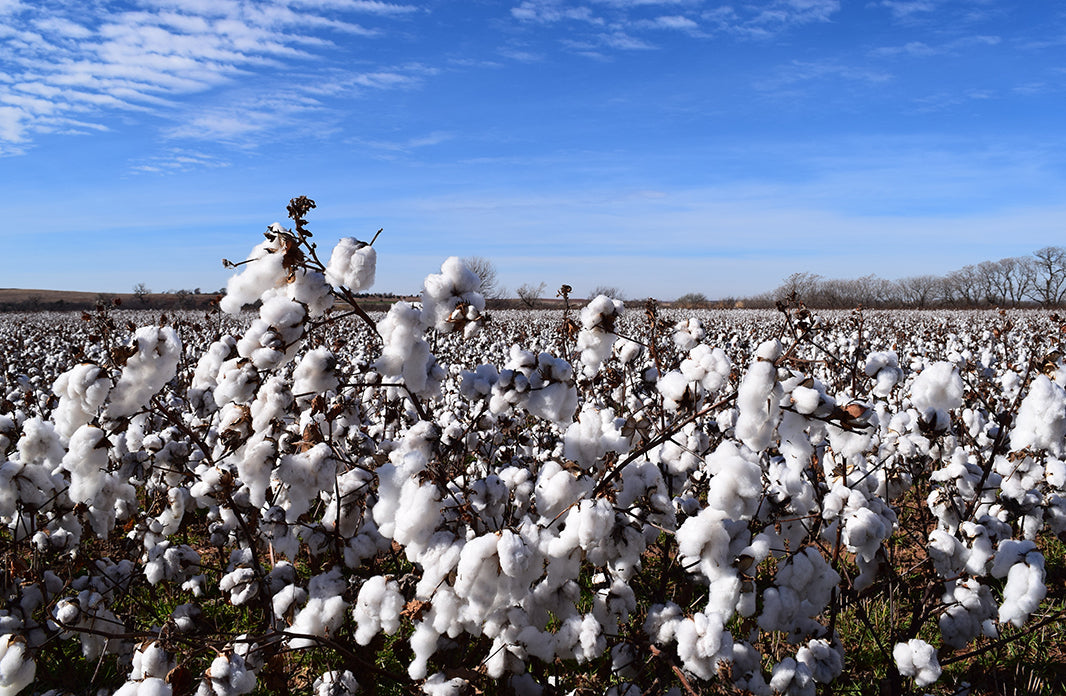What is Organic Cotton Clothing?

We get a lot of questions about organic cotton clothing, sustainable fabrics, and natural fibers. They’re all interconnected, but for all our fellow fabric nerds here’s our roundup of most frequently asked questions.
What does “organic clothing” mean?
From the veggies in your fridge to the clothes in your closet, crops grown organically are grown with GMO-free seed and follow practices that maintain soil health, conserve water, and support biodiversity. So organic clothing is apparel made from organically grown fibers.
Is cotton clothing sustainable? Is organic cotton better? Is organic cotton really sustainable?
When it comes to organic cotton vs. cotton, the difference is in the production. Conventional cotton uses 15% of the world’s pesticides. Certified organic cotton farming forbids the use of toxic chemicals, pesticides and GMOS. So yeah, organic cotton is much better for farmers, consumers, and all living things. Our organic cotton clothing is made from cotton grown in Turkey, India, and China. For us to use it, it must be GOTS or OCS certified.
What is organic cotton fabric? What makes cotton organic, anyway?
Let’s lay out some basic organic cotton facts: Non-GMO, no pesticides, low-water crop. Organic cotton starts with non-GMO (genetically modified organisms) seed that’s grown without toxic chemicals, pesticides, or pollutants that can be harmful to farmers and ecosystems. Organic cotton is grown predominantly with rainwater instead of irrigated water. If it meets these criteria, cotton is certified organic. 100% of our cotton is either certified organic or recycled.
How does organic cotton conserve water?
Organic cotton uses far less water, and often uses a more sustainable kind of water called “green water.” Green water uses rainwater instead of irrigation (versus “blue water,” which is pumped in from lakes, streams, glaciers, and snow). Overall, organic cotton uses 88% less water than conventional cotton to grow.
Is organic cotton softer?
We like to think so, but there’s really no difference in hand feel. The only way to know if something is made with organic cotton is to read the fabric details tag inside the garment. Convinced? Shop Men’s organic cotton clothing and Women’s organic cotton clothing.
Does organic cotton shrink?
Both conventional and organic cotton may shrink, especially when washed in hot or warm water and dried at high heat. We test all of our fabrics to make sure they are within an appropriate shrinkage percent, and we garment wash the 100% organic cotton styles to pre-shrink the items before customer purchase.
Is organic cotton in conversion the same as organic cotton? What's the deal?
We introduced organic cotton in conversion in early 2023, and are excited to keep it rolling in the coming years. Think of it as organic-in-the-making – these fibers are sourced from farms that are making the shift to organic processes but aren't quite certified yet (the certification process takes years). As we support these partners in their transition to organic, it also helps drive change in the industry as a whole.
OK, so why is organic cotton better?
All of the above! While you may not notice the difference at first glance or touch, it's really all about the production and the fabric's impact on the planet. And to us, that makes organic cotton worlds better than your average conventional cotton.


